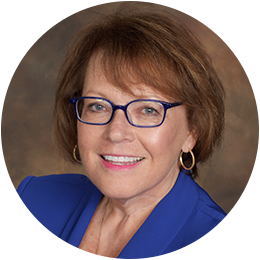---part-2.jpg?sfvrsn=fe069d22_0)
Earlier this month, I wrote about the future of Medical Services Professionals (MSPs). It was mostly about what has or will change, why and the impact on MSPs and the industry.
Sometimes it is comforting to be reminded that not everything is changing, especially when we are experiencing a lot of uncertainty in our personal and professional lives. In this issue, I’d like to focus on some of the things that will not change as we move forward in 2020 and beyond.
- Healthcare organizations still need to credential and privilege providers (physicians, dentists, podiatrists, psychologists, nurse practitioners, physician assistants, etc.). The investigation of a provider's background, including education/training, certification, etc. has not been dismissed as not important. In fact, I would say that the opposite is true. Credentialing and privileging is as important today as it has ever been – and perhaps has been elevated in significance because of the consequences to healthcare organizations of not doing credentialing well. The need to assure that providers are competent to provide the care that is needed by our patients has never been more important.
- Healthcare organizations need MSPs who have credentialing/privileging knowledge and are capable of identifying providers with issues that should be carefully evaluated before privileges are granted. MSPs who can facilitate a decision-making process that factors in all issues, documents how issues were dealt with and can carefully adhere to policies and procedures are very valuable to the healthcare organizations that employ them.
- The stream of provider data that is initiated and verified during the credentialing process is enormously valuable to healthcare organizations. I can’t tell you how often I hear healthcare executives say that they want the credentialing database to be the “source of truth” for provider data for other business applications. The responsibility for collecting and maintaining critical data has given well-positioned MSPs a seat at the table with organization executives/decision-makers.
- The need for skilled meeting managers will not disappear. Organizations need MSPs who can work effectively with medical staff and other leaders to carefully orchestrate meetings that have high visibility and impact – such as a Medical Executive Committee (MEC). I’ve been to a lot of MEC meetings during my time in this profession – and I’ve seen the good, the bad and the just plain terrible. The key to great meeting planning is to plan a meeting in a way that gets to the desired outcome – on time! If you can write the minutes most of the time before the meeting occurs, you are doing excellent work! Whether or not meetings in the future are held in person or virtually, there will always be a demand for MSPs who recognize that managing a meeting is much more than preparing an agenda and taking minutes.
I love the energy and enthusiasm that MSPs have for their work that contributes so substantially to patient safety. You know that what you do is important – and although the way that you achieve successful outcomes will be influenced by technology and other factors - the skills you bring to the table are valued and needed.
